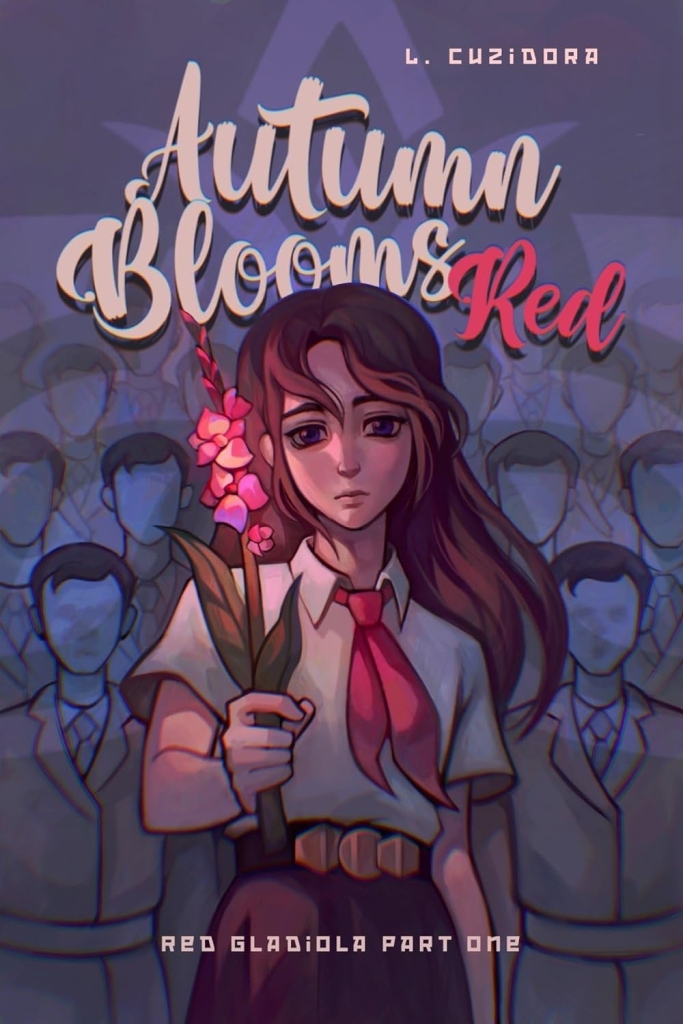L Cuzidora is a proud rat mother from Transylvania, Eastern Europe. She studied Sociology and Environmental Sciences and wishes she’d had started writing at an earlier age. Now she’s determined to make up for all the years spent jumping from one passion to another and devotes herself to exploring even more flawed characters. Her book “Autumn Blooms Red” (Red Gladiola Book 1) centers around Avril and Irina’s relationship in a dystopian society.
Synopsis: It’s been a decade since Avril’s family was exiled to Ordea’s smallest province. While not entirely stripped of power, her mother’s bitterness blinds her to Avril’s needs. So when an old friend of her mother’s shows up with plans of rehabilitation, Avril is quick to join. As months pass and no concrete steps are taken, her own approach becomes ever more reckless. After all, she can count on her parents’ support. But what’s the weight of family in a society striving towards equality?
Orphaned at a young age, Irina clings to her family’s traditions in a secular world. She finds little comfort in the State’s promises of safety, determined, despite the risks, to help those unable or unwilling to live by the party directive. To her, Avril is a special sort of circumstantial victim, one who’s not even aware of her imprisonment. But when her faith revolves around leading others onto the right path, who’s to watch that she won’t lose herself? (Amazon, 2024)
Review: “Autumn Blooms Red” by L. Cuzidora is an intriguing story that explores the elements of romance, mystery, and self-discovery. Set against the backdrop of a militaristic society complete with parades, soldiers, one child policies, and food rations, it follows the journeys of Avril and Irina. Avril’s family has been exiled and her mother has selfish motivations that don’t include Avril. Irina was orphaned at a young age and struggles to survive emotionally in a repressive society. They seem like polar opposites, but they find each other.
The narration is in the first person point of view and the chapters are short and alternate between the two, so readers get an insight into their specific mindset. While the main characters are deeply developed and relatable, the secondary characters have their own compelling stories and motivations, adding depth and dimension to the narrative.
The author’s prose is rich and beautifully poetic, filled with vivid imagery, which paints a picturesque landscape that effortlessly transports readers into the heart of the narrative: “Orange light knives through the shutters of our bedroom. I’ve exhausted every corner of my pillow, searching for a cool spot.” She expertly weaves twists and turns that keep the suspense alive and make the action flow effortlessly through the pages.
Overall, it’s a poignant and compelling story about resilience and the power of human connection. It will no doubt linger in the hearts of readers long after they’ve turned the final page. It is an easy read and recommended for readers who enjoy dystopian fiction filled with flawed characters amid unique worlds and settings.
*The author was contacted for an honest review of this book. The views and opinions expressed here belong solely to her.





